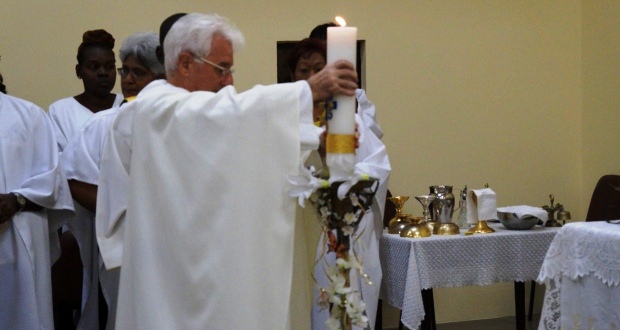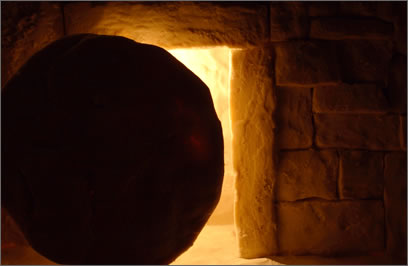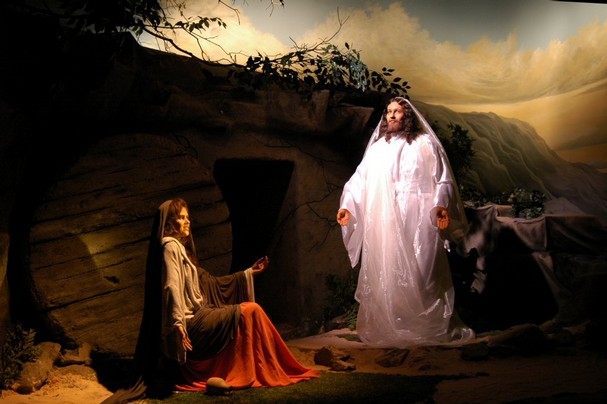Every Branch That Bears Fruit, He Prunes To Make It Bear Even More . .

Fr Dexter Brereton, CSSp ThM STL
John 15: 1-8
This little discourse in the Gospel reading, comes from the Last Supper scene of Jesus with his disciples. He gives a teaching on the nature of the relationship between himself and the community which he gathers around him and in the process, he evokes the image of the vine and branches. In the bible, the vine is a metaphor for the whole of Israel, of whom God is the owner. A common crop in Mediterranean agriculture, the care of the vine crop was fairly demanding and labour intensive. The ground had to be cleared of stones and terraced, since vines were often planted on hillsides. It had to be protected against predatory animals with a wall or a hedge and the ground, before planting, had to be cultivated with a hoe or mattock. Care of the vine demanded maintenance of the wall or hedge, weeding, watering and pruning.
Metaphorically, as I said before, the vine is Israel (Ps 80: 9ff, Jer 2: 21; Ekek 15: 1ff) and as such is the object of God’s exquisite care, the plant from which God expects the most fruit. Jesus’ metaphor here, for himself as the vine and his disciples as the branches then, is not only deeply rooted in Jewish scriptures but provides an image which is parallel to Paul’s image of the Christian community as the Body of Christ which we meet in 1 Corinthians 12: 12-27 and Colossians 1: 18. Behind these images are the notions of sharing, interdependence, and equality. If Jesus is in any way a reality in the world of today, it is because he is present in and through the community of the baptized.
Early in the discourse, Jesus makes an allusion to the process of ‘pruning.’:
Every branch in me that bears no fruit, He cuts away
And every branch that does bear fruit he prunes to make it bear even more.
To prune means to ‘cut back’ or to reduce the plant by the removal of excess leaves and branches with a view to increasing its output.
An analogous process takes place as the Lord leads us along the path of spiritual maturity and growth. Over time, we find that our lives become reduced, in human terms, we are pruned by the losses and tragedies we have to endure in the course of life. All these serve to rid us of unneeded, false ideas of ourselves, of our vulnerability (or lack thereof), and our popularity. The irony is that it is precisely this pruning, this bath in the river of misfortune which purifies our hearts and minds and fashions us into fitting instruments of God’s will and purpose.
A parallel movement could be found in a famous story from the Buddhist tradition. A brilliant young scholar Tukosan sought out a zen master, to discuss the spiritual traditions of Buddhist faith. In the course of the meeting, while listening to young Tukosan expound on all that he already knew of Buddhism, the old master re-filled his guest’s cup of tea and did not stop when it was filled, cause tea to spill all over the place. “Stop!” the younger man yelled, “The cup is filled!”
“Exactly!” replied Ryutan. You are like this cup. You are full of ideas. You came to ask for teaching but your cup is already full. I can’t put anything in it. Before I can teach you, you will have to empty your cup.
As a seminarian, for a little while I worked with and was mentored by a prominent layman in the local Church. I remember him summing it all up for me one day as we ate lunch in his office: “Dexter, you are not stronger than Sampson, and you are not wiser than Solomon.” This, for me is where the pruning that Jesus speaks about here is supposed to lead us – a blessed humility which makes us clear-eyed and realistic about ourselves and about life. This is true wisdom. Only such a person can begin to grasp the truth of life.
Let us ask ourselves: ‘Am I willing to let God prune me and remove my false notions of being powerful and wise?” ‘Am I willing to let God cut away my pride so that I have to depend on him like a little child on its parent?’ Lord, we pray for wisdom, that we may surrender to life as it prunes us and makes us into your perfect instruments. Amen.






